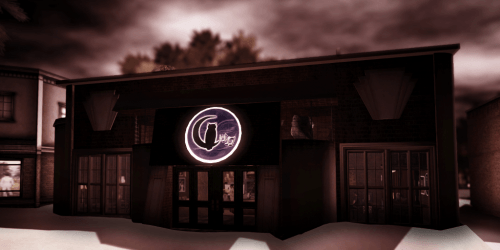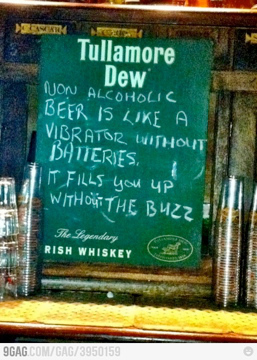Dermott Hayes's Blog: Postcard from a Pigeon, page 74
May 16, 2016
Breakfast – a psychic anchor.
Hunter S. Thompson once wrote breakfast was the most important meal of the day and I can’t disagree with him.
Now, whether I could handle Thompson’s prodigious fare, without a nap that might take up the rest of the day, is another thing.
For the record, here is what the Great Gonzo had to say about the first meal of the day.
“Breakfast is the only meal of the day that I tend to view with the same kind of traditionalized reverence that most people associate with Lunch and Dinner. I like to eat breakfast alone, and almost never before noon; anybody with a terminally jangled lifestyle needs at least one psychic anchor every twenty-four hours, and mine is breakfast. In Hong Kong, Dallas or at home — and regardless of whether or not I have been to bed — breakfast is a personal ritual that can only be properly observed alone, and in a spirit of genuine excess. The food factor should always be massive: four Bloody Marys, two grapefruits, a pot of coffee, Rangoon crepes, a half-pound of either sausage, bacon, or corned beef hash with diced chiles, a Spanish omelette or eggs Benedict, a quart of milk, a chopped lemon for random seasoning, and something like a slice of Key lime pie, two margaritas, and six lines of the best cocaine for dessert… Right, and there should also be two or three newspapers, all mail and messages, a telephone, a notebook for planning the next twenty-four hours and at least one source of good music… All of which should be dealt with outside, in the warmth of a hot sun, and preferably stone naked.” Hunter S. Thompson
Coffee is the first thing on my mind in the morning. I’ve found a brew, or rather, a bean, that I’m happy with after years of searching and sampling. It’s the Monsoon Malabar, a name that describes the process of its harvesting on the Malabar, Indian Ocean coast of Kerala, India. The harvested seeds are laid out, in open warehouses and exposed to the monsoon winds for up to three or four months each year. The beans swell, lose their acidity and arrive at a near neutral pH balance. It is coffee like no other, if you like your coffee, strong and pungent.
So I grind my coffee beans, heat the pot with some hot water, before adding the freshly ground beans and more water. Then I let it sit, and wait.
Now I usually like to cook something for breakfast, but this morning, well, I opted for some fresh fruit, raspberries and peach, meusli and assorted nuts on a bed of fresh, natural yoghurt, from a farm in north Dublin. It was gorgeous and that, complete, I can get on with my day, having given it, as Hunter S Thompson advised, a psychic anchor.


May 15, 2016
Sunday Summer Saunter

This is Brody, my grandson, the little girning guy in the previous, No, Don’t Wanna picture prompt post. He paid me a visit today, with his mummy, my daughter, Holly and we took a leisurely Sunday summer saunter through the neighbourhood.
Of course, that meant lunch in The Fish Shack, down on Parliament St, where Brody, like his cousin, Fionn, the week before, got a chance to get up close with a lobster.
From there, we took a stroll through the grounds of Dublin Castle where Brody made a storming run from the main gate before his Mum caught up with him.

Before we left the castle grounds, we went to the Chester Beatty library where we bought Brody a diary souvenir. He wasn’t interested in an illustrated version of 1001 Arabian Nights.
After that, we took a stroll to the park beside St Patrick’s Cathedral and here, Brody demonstrated a child’s propensity to digest endless quantities of ice cream. Fun day.


May 14, 2016
No, don’t wanna
May 13, 2016
Touching death
It was Benjamin Franklin who coined the phrase, In this world nothing can be said to be certain, except death and taxes. Since the Panama Papers, t axes are no longer a sure fire thing. So that leaves us with death, as fascinating to the young, as it is the terror of age.
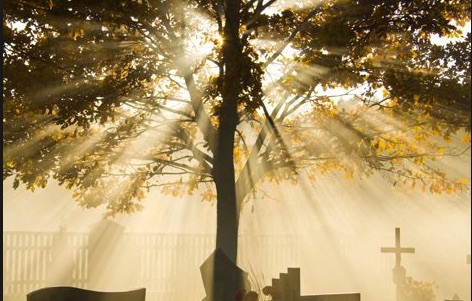
I remember the first time I saw and felt a dead body. I remember the cold, hard, waxy feel of my neighbour’s body as he lay stretched out in his best suit on a bed in the house. It was a cold night but the entire neighbourhood turned out to pay their last respects. A half moon hung in the sky over the house like a discarded communion host.
There may have been singing and waking in the traditional sense but I have no memories of that. Instead, I remember how we hid in the garden watching people file up the steps to the front door. It continued all the way up the stairs as another line returned.
The neighbour’s house was one of two big houses at the gable ends of a block of council houses, uniformly pebble dashed and slate roofed. Each had a front garden of about 15 sq metres and a short, narrow pathway to its door, a wooden country house door with a wooden skirt flap. Three peep windows were lined along the top. Each had a standard Yale lock and a key that was always in when the family was home.

Each house was distinguished by its garden and ornamentation. Corner houses had particularly big gardens, more than twice the size of the adjoining houses and a pathway that ran up its middle to the front door. This neighbour’s house was the last on a slight incline. It had three steps to its front entrance.
Myself and three friends sat in the shadow of the garden’s thick hedge and spoke with hushed awe of the presence of death.
When I got dared to go and see, I went. It became an adventure and we didn’t know whether it fell within the rules of other schoolboy trespasses. Would I get caught and a clip on the ear for my impertinence? Would I be chased the length of the garden and further? Would some terrible and unspeakable vengeance be wrought on me by the dead?
My companions sat in awed silence as they followed my progress. I was shitting my trousers. As I joined the line of people entering the house from the garden, people noticed me and despite their muffled prayers, ushered me, gently, through the crowd and up the stairs.
The layout was the same as my own house which was almost directly opposite my neighbour’s in the square where we lived. People who knew me were pushing me along.
As I reached the top of the stairs and rounded the landing I could see the body was laid out in the biggest room in the house, right at the front. Domestic smells of boiled cabbage and fried mackerel lingered acridly alongside church candle grease, sweat and holy incence.
Father McMenamin began the rosary. He was kneeling in the bedroom beside the corpse. The room was full of mourners who were the relatives and neighbours of the deceased. Although I knew them all they were unfamiliar. I couldn’t think whether it was their unusual dark clothing or whether death had made them all strangers to me, as though they knew the cold touch of death and I had yet to make its acquaintance.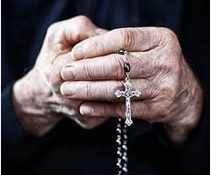
The click and clack of snap purses opening and rosaries unfurled roused me from this morbid reverie. From the bedroom ahead, across the landing and back down the stairs I had just ascended, the announcement of the Sorrowful Mysteries triggered a wave of kneeling.
The priest recited the first half of the Lord’s prayer and the entire house took a breath, as though it, and all within it, had become a single entity. Not just each individual and at once, but the entire house in its own being, as though it were part of the sorrow unfolding.
The response came like an exhalation, a chorus of rumbles, whispers and whistles. I joined the household on their knees and prayed in the same sonorous rumble as the rest.
Some liked to finish before others. Some started the next response before the priest finished his. A few people, kneeling on just one leg, beat their chest with the arm resting on their knee while holding their rosary and counting off the beads.
I could distinguish individual voices and styles as I got used to the sound. I couldn’t tell who they were but it was what I imagined listening to an orchestra must be like. First, there is just one sound to be heard and that is the sum and sound of all the parts. But then you can hear the individual instruments, how some are off tune, overplaying and out of time.
When the praying ceased, some of the gentlemen removed the neatly folded, crisply cornered hankies they had placed under their knees while they prayed. The stairs creaked under the strain of the crowds as they shuffled themselves to their feet, clearing throats and coughing. Isolated pious whistles indicated some had not finished praying and the noise level dipped in deference.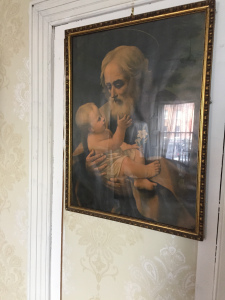
A pair of big, bony hands settled on my shoulders and propelled me gently towards the room where the body had been laid out, the big room.
‘Let the wain through, there…the wee boy wants te say his own wee prayer,’ I could hear his voice say and the mourners parted before me into a room with repeating wallpaper patterns of flower bouquets in blue and yellow.
The body lay stretched on the bed. He was dressed in a dark suit and a light blue shirt with a navy tie. The hands were entwined with a rosary. Overhead, the Sacred Heart looked down. An eternal light glowed in a candlestick of red glass beside three framed portraits of Pope Pius X, Eamon DeValera and President John F. Kennedy.
I felt cold and wondered why, in a room so full of people. Caught in the shuffle of mourners, I found myself beside the coffin, at eye level with the dead man’s right ear. Cries, sniffles and murmured prayers full of anguish and sorrow filled the air around me. I noticed how people reached out to touch the body as they prayed in murmurs and then blessed themselves.
Lowering my eyes from the bush of hair bursting from his nostrils and ears like an old, discarded mattress, I wondered awhile whether the body before me had ever contained any animation. Apart from its ghostly, parchment pallor, the facial muscles were no longer holding anything in place and, were it not for the undertaker’s formaldehyde, would look like a Halloween skeleton.
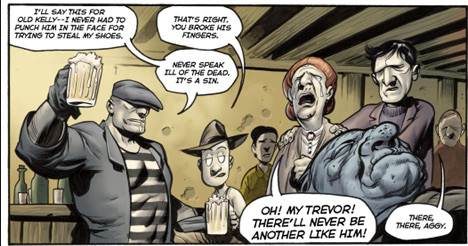
craigzlabo.com
Instead the body’s former features strained to hold their shape, drawn by gravity, inertia and morbidity. So although it looked like my neighbour, something was missing. Perhaps it was his soul, I thought. Or else this must be what a ghost looks like.Pale could not describe his pallor with any justice. His skin was the whitest of white or else it was a whiteness that exists only when the life force in white was gone. Blue and red veins stood out in a body washed of colour. I struggled to describe this ‘white’ to myself as I knew I would have to recount my entire adventure to my companions squatting under the hedge in the front garden.
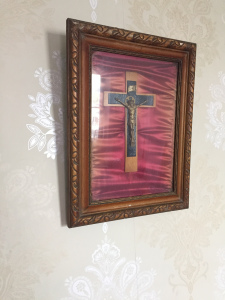
It was the white of the church, the marble white of statues, shiny and worn by the touches of the faithful. I reached my hand across to touch the statue before me. Because of the height of the bed, I lost sight of the corpse while attempting this manoeuvre. My head dipped below while I strained my hand across to the point where I believed his nose was.
But instead of the icy death sensation I expected what I touched was warm and living.
In retrospect, I remain proud of my reaction despite the derision it inspired for weeks to follow. I didn’t scream. My bladder did squirt a leak of terror that I suppressed.
Few, under the circumstance, should have been surprised at my evasive action which was both swift and, well frankly, evasive. I got the fuck out of there.
As my unsighted hand probed the air tentatively and millimetres from the nose of the neighbour’s prone body, it brushed the hand of another mourner making a similar stab from the other side of the bed.
They must have felt the same illogical moment of fear as I could feel them jerk their hand away too. Mine had been aimed at the tip of the nose which was pointier, sharper than it had been in real life.
I shut my eyes, as though to share all the senses of touch, sight and smell at once with a corpse might have some hidden, secret danger of which I was singularly unaware. When my neighbour, and fellow mourner, touched my hand I thought I’d been touched by the dead.
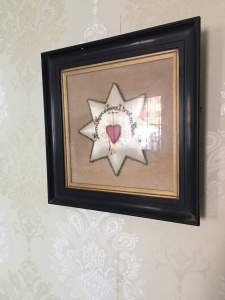
I jerked my finger away but got caught in a nostril. When I heard the scream I knew it was every man for himself. I had no intention of waiting around to find out what happened or to have myself blamed for something I was myself at a loss to explain.
The audible gasp by mourners in the room was the last sound we shared as I shot out the door like a rat from a drainpipe and along the landing then down the stairs, three steps at a time and out the door with a leap. I hit the garden running and the chill night air and fading light snapped me back to where I was.

My heaving lungs filled, I gasped just long enough to emit a scream to wake the dead.
Whatever touched or possessed me would be driven out. I touched death and stuck my finger up its nose.
I didn’t stop running for five minutes and my friends never caught me. And when I met them the next day as we walked to school I told them nothing of what happened. Of what I knew.


Deaf — Sableyes
Hilarious, inclusive, incisive and poetic
“Why so glum?” asked Cara. “I have Deaficus-Maximus” sighed Nai. “Whats that?” enquired Pru. “Means I am going deaf” replied Nai. “Oh dear!” exclaimed Autumn, “can you describe the symptoms?” “Sure” said Nai, “Homer is fat and yellow and Marge has blue hair.”
via Deaf — Sableyes


Homebody, somebody, nobody – Signs of the Time #3
May 12, 2016
Starman – Life on TrappistOne #2
Writers Quote Wednesday Writing Challenge-change

“2 Do not conform to the pattern of this world, but be transformed by the renewing of your mind. ( Romans 12:2a )
There were three stages in BehaviourForum: Initiation, Formulation and Reassembly. When a child left WombHome, it was taken to Initiation. Here, life lessons were taught, washing, feeding, staying healthy, finding a function.
Of course, no-one called these things by their full name. It would be tiresome and time wasting was never encouraged. So BehaviourForum was BeFo, Initiation was InIt, Formulation was FormU and Reassembly was ReAs. Nothing was complicated because Complications cause Conflict.
There wasn’t many Units in ReAs. It was such a simple procedure; take a ticket, wait for your number, then follow the receptobot to the ReAs chamber. It wasn’t, of course, a chamber. Well, he didn’t think it was, as though the word, chamber, has some significance to him. No, he couldn’t think of anything similar but he had this feeling, yes, that’s what it was, a feeling. He was marvelling at this discovery, when there was a loud squawk from the ReAs tannoy.
“Number 158, Unit please respond…number 158, Unit please respond”
He was still smiling, a far away look in his eyes, when he realised it was his number that was being called.
He rushed to the window, inserted his number card into the slot, there was a whirr, a clack, and a receptobot detached itself from the counter rail, lights blinking and surging as he booted up, on the run.
And it was off, the receptobot set off on its designated route, Unit 158, not Abraham, the name given to him, when he graduated from WoHo to BeFo, followed.
And this was where all this chamber palaver began. Abraham, or Unit 158, if you like, couldn’t escape the notion running around his head, like a child, playing in an empty warehouse, was an emotion , the thing he read about from a digital file he found in the Crater of Density. He was feeling something about the word, chamber.
He could feel his heartbeat and pulse begin to race and then, maintain a pace that would only feel natural if running. But, he wasn’t running. And, aside from that, there was the accelerated excretion of body fluid through, head, torso and genitals. Unusual, even uncomfortable.He resisted to adjust his TopCover, his toco and its graphene lining.
He was strapped in to a kaleidoscope of emotions. As soon as he felt one, another gripped him. He was smiling at the receptobot, facial muscles ache, unusual. The door of the chamber opened as the receptobot arrived. He stepped inside. The receptobot retreated, back on the rail.
Now he’s in the ReAs chamber and it’s just not a chamber, at least, not as he knows it. And that’s the thing, right there, he doesn’t know what a chamber is but his feelings, these sensations, jolting, coursing and crashing through his perceptions, tell him this is not a chamber.
It’s a tall ceilinged, airy room with a grand, panoramic view of the lush, golden sway of the Grand Plain. There’s a small table, standing right in the centre and beside it, a small chair. A new receptobot stands beside the table, motionless.
He sits. The receptobot pours him a drink from a pitcher stored in his chest panel. He takes the drink. There’s a flash of light.
And that was it. He was out and he has a memory. He can remember. His mind has not been reassembled.
TO BE CONTINUED


Signs of the Time #3
May 11, 2016
Signs of the Time #3
Chance Encounter?
https://dailypost.wordpress.com/discover-challenges/chance-encounter/
The train was full. He was glad he booked his seat, online. There were eight added carriages for this Friday evening trip to Cork and it was full. standing room, only, full.
Booking a seat seemed a betrayal, smacked of conniving and planning. At least, that’s how he felt when he turned up in the carriage and pointed out the reserved notice on his seat and the designated number on his ticket. There were rumbles, shuffling, dragging but he held out, he knew what this seat would mean for him, and then he got it. Up yours, suckers, in your face, he suppressed and eased out a contented, barely audible, sigh.
Drink flowed. It was the eve of St Patrick’s day and, while one third of the passengers were regular commuters on a visit, a business trip or going home, the majority, the other two thirds, were on their way to a WBO Super Middleweight title fight, in Mill St, Co Cork, an arena better known for its indoor equestrian gymkhanas.
Steve Collins, was a local boy, a Dubliner, done good. A champion, already – he relinquished his title of WBO World Middleweight to fight Eubank – he had nothing to prove to anyone, but himself. Eubank was undefeated but the Gods were with Collins, it was a day after St Patrick’s day and there was a mystic guru, in the form of Dr Tony Quinn, in the Irishman’s corner. A lot of mind games were played against Eubank, the dandy showman.
1.10pm, close to time, a rustle in the aisle and a tall, distinguished man, in a tweed cap and a Donegal tweed suit of blue with gold specks, leaned across me to address the man in the seat nearest the window, who, it was now apparent, was doing a terrible job of pretending to sleep. ‘Excuse me, me oul’ flower,’ the tall man said, ‘you’re in my seat.’
The flower in question arched the eye closest to the proffered ticket, he gave up, the game was up. There was a ribbing cheer from his friends, as their ousted companion slunk from his perch. Our man offered the inside seat to the tall man but he said, No, Dermott, go on, you take it.
“So, PJ,” he said to him, “of all the seats, in all the trains, in all the world and you found the one next to me, what are the chances?”
Laughing, PJ Mara, corporate PR guru and occasional confidante to successive heads of state, flopped in to his seat, turning to address him, “Dermott, I don’t know what you’re implying. I’d say there were two chances and Slim’s out of town.”
Condensation wasn’t pouring down the windows behind him, it was an ironic drool, a slurry of sarcasm. “You’re on your way to the fight, then?” he asked and Dermott was surprised by Mara’s opening gambit, it was artless in extreme. “No, I’m catching a train to Kerry this evening, to climb Carrantouhill,” Dermott replied, his facetious reference to the tallest mountain in Ireland, he felt, was enough to halt the flow of bullshit.
But Mara was a seasoned campaigner. With just a wisp of a smile to acknowledge the ironic retort, he rested a pair of bifocals on his nose, opened that day’s Irish Times and started reading.
One hour down the track, neither of us has spoken. The crowded train carriage is awash with spilled beer and cheer, there’s a sing song in full swing, then Mara made his opening gambit. “How long are you in the ‘Herald, now, Dermott?” “Two months,” he said, and it was true. “You’ve made quite an impression in two months.”
He was being ‘plammased’ and by a master at his trade, too, but why? ‘Plammas’ was a phrase drawn from the Gaelic that meant he was being licked, all over, like he was a choc ice, by one of its slickest practitioners. His guard was up.
“I was lucky, there were a lot of things going on,” he answered; Mara, media guru would know a public row between the country’s top chat show hosts and then a celebrity studded opening night in Dublin for Riverdance, The Show, was enough to put a go-getter, hungry hack in a gossip column, in the limelight. Sure enough, his first month in the job was hectic and the pace never abated, particularly after those stories hit the pages of The Diary.
“Did you enjoy Riverdance?,” he asked him and this, he knew, by instinct or design, was where this story takes off. ‘You’re working for them?” the young reporter asked Mara. “I am,” says Mara, “or, at least, the producers and the show’s investors.”
“It’s a huge hit,” the reporter said, “your investors must be very happy with themselves, they’ve struck gold.” Waiting for an answer, he was struck by Mara’s grimace. Was he being played or had he hit a vein of gold of his own digging.
“How are things backstage in Riverdance, behind the scenes? I hear there are plans to stage it in the West End before the year’s out?” He could see Mara wait, a pulse point in his temple beat a rhythm, Mara looked at him, turned his face away, then turned back, smiling.”
“Flatley is causing them terrible problems. He’ll bankrupt them before the show gets off the ground,” and even as Mara voiced these words, the reporter knew he was landed, hook, line and sinker, flouncing and flapping about on the deck, waiting for Mara. It was just a chance encounter, he knew.


Postcard from a Pigeon
- Dermott Hayes's profile
- 4 followers






